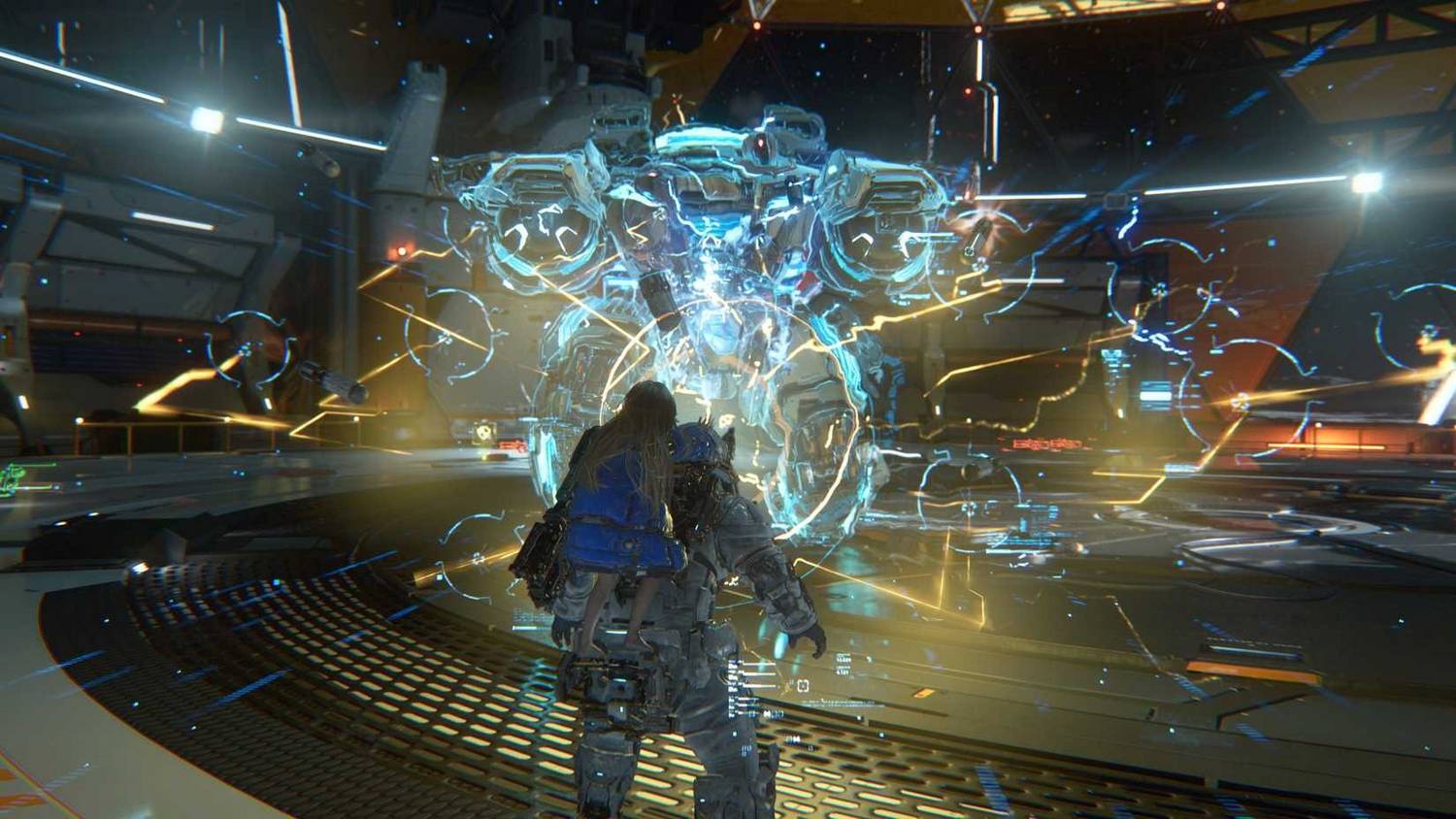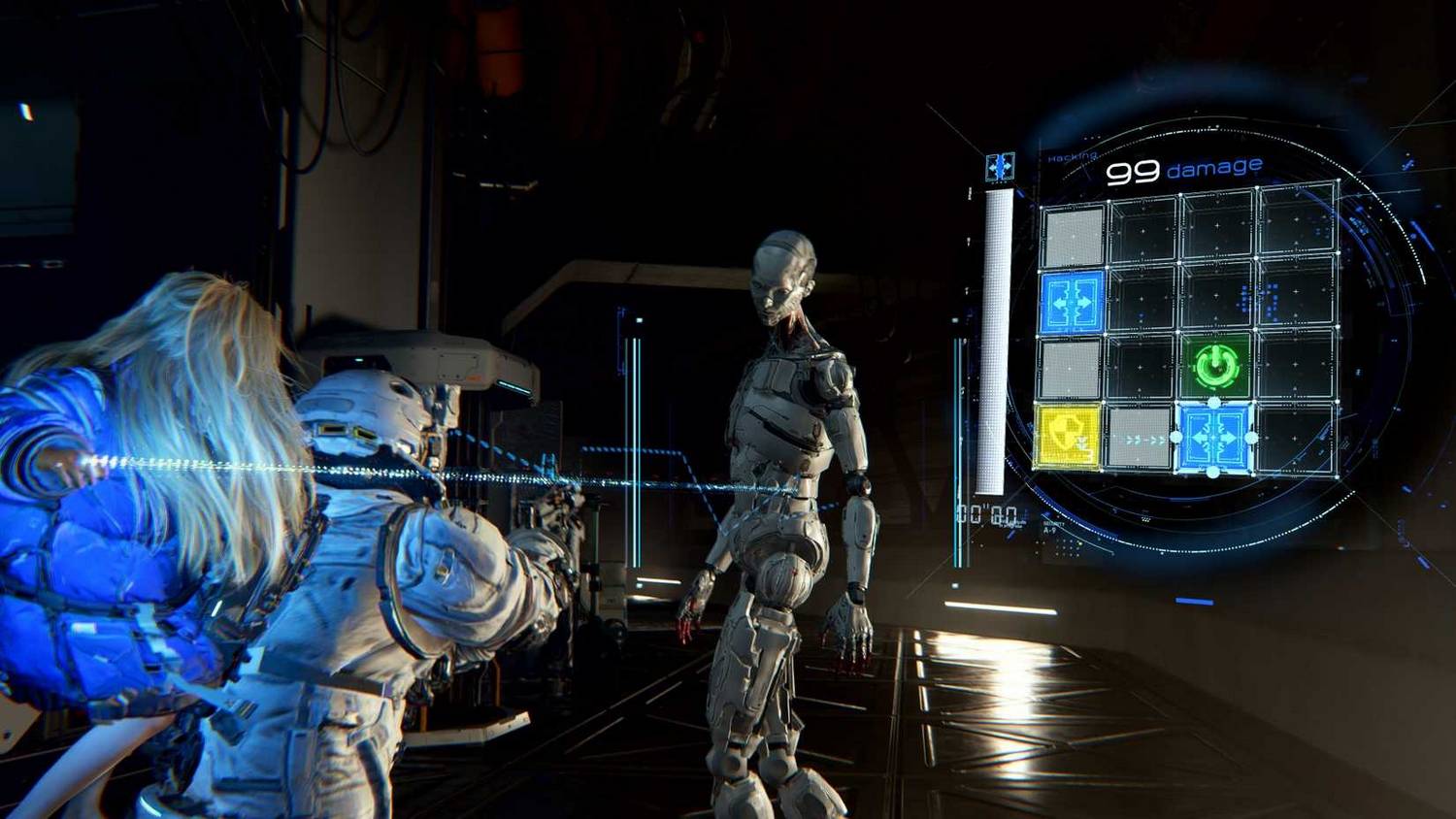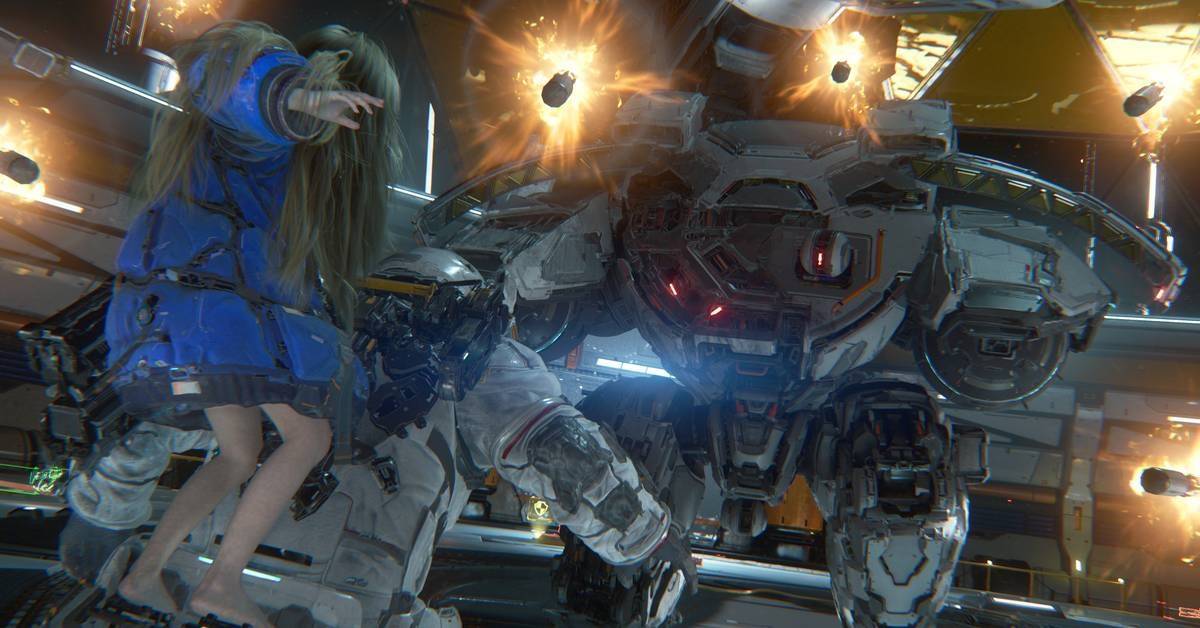A Bizarre and Brilliant Combination: Pragmata’s Combat-Puzzle Mechanics Are a Refreshing Shot of Adrenaline
Popular Now
 FIFA 23
FIFA 23
 Rust
Rust
 EA SPORT FC 25
EA SPORT FC 25
 Candy Crush Saga
Candy Crush Saga
 Minecraft – Top 5 Minecraft Mobs
Minecraft – Top 5 Minecraft Mobs
 Auto X Drift Racing 3
Auto X Drift Racing 3
 BeamNG.drive
BeamNG.drive
 League of Legends
League of Legends
 Gacha Club
Gacha Club
 Toca Boca World
Toca Boca World  For years, Pragmata has been an enigma. Revealed in 2020 as a PS5 exclusive, the game’s initial trailers were a mesmerizing blend of sci-fi surrealism and cryptic storytelling. The long silence that followed, punctuated by multiple delays, led many to believe that Capcom’s new IP was either in development hell or had quietly been canceled. But now, with a new 2026 release window and extensive hands-on previews at major events like Gamescom, the game’s unique and baffling core concept has finally been revealed and, against all expectations, it has been met with critical acclaim. The game’s central gameplay loop—a chaotic and high-stakes combination of third-person shooting and real-time puzzle-hacking—is not only living up to the hype, but it’s also being hailed as a bold, brilliant idea that could redefine the action-adventure genre.
For years, Pragmata has been an enigma. Revealed in 2020 as a PS5 exclusive, the game’s initial trailers were a mesmerizing blend of sci-fi surrealism and cryptic storytelling. The long silence that followed, punctuated by multiple delays, led many to believe that Capcom’s new IP was either in development hell or had quietly been canceled. But now, with a new 2026 release window and extensive hands-on previews at major events like Gamescom, the game’s unique and baffling core concept has finally been revealed and, against all expectations, it has been met with critical acclaim. The game’s central gameplay loop—a chaotic and high-stakes combination of third-person shooting and real-time puzzle-hacking—is not only living up to the hype, but it’s also being hailed as a bold, brilliant idea that could redefine the action-adventure genre.
At the heart of Pragmata is the symbiotic relationship between the protagonist, Hugh Williams, and his enigmatic android companion, Diana. The duo’s dynamic is not just a narrative device; it’s the entire foundation of the gameplay. While Hugh, a gruff astronaut, handles the standard third-person shooting with a variety of weapons, Diana, who rides on his back, is the key to defeating the hostile, armored robots that roam the desolate lunar world. The catch is that simply shooting these enemies does little to no damage. To defeat them, you must first hack them, and this is where the game’s unique, high-pressure puzzle mechanics come into play. It’s a system that, while initially overwhelming, is proving to be a stroke of genius.
 The Combat Loop: A Dance of Dexterity and Brainpower
The Combat Loop: A Dance of Dexterity and Brainpower
The combat in Pragmata is a frantic, “stressful,” and deeply rewarding juggling act. When a player targets an enemy, a puzzle grid appears on the screen, and using the face buttons, the player must navigate an icon through the grid to a specific endpoint. This sounds simple on paper, but it all happens in real-time. This means that while the player is solving the puzzle, they must also be constantly moving and dodging enemy attacks, as a single hit will reset the hacking progress. This creates a powerful, high-intensity gameplay loop that forces players to constantly split their focus between two very different actions.
- The Arsenal and its Purpose: The weapons in Pragmata are designed to complement the hacking mechanic, not replace it. Players start with a basic, infinite-ammo pistol that does minimal damage but is essential for dealing with multiple enemies. They later acquire more powerful but limited-use weapons like a shotgun for close-range combat and a net gun that can immobilize enemies, giving the player precious seconds to complete the hack. This careful balance ensures that every tool in the player’s arsenal has a specific, tactical purpose, turning every encounter into a complex, on-the-fly combat puzzle.
- A New Layer of Challenge: The “puzzle” aspect of the combat is not just a gimmick; it’s a fundamental part of the game’s difficulty. The puzzles increase in complexity as the game progresses, and players will encounter different nodes that must be navigated through or avoided. The game also features upgrades and consumables that can make the hacking process easier or more rewarding, adding a layer of resource management to the chaos. This ensures that the combat remains fresh and challenging, preventing the core gameplay loop from becoming repetitive.
- A Return to “Weird” Capcom: For fans of Capcom’s classic, experimental titles from the PlayStation 2 and GameCube eras, like Killer7 and P.N.03, Pragmata is a welcome return to form. The game’s bizarre premise, unique mechanics, and a story that is more interested in creating an atmosphere of intrigue than a straightforward narrative, all feel like a deliberate effort by Capcom to break away from the AAA formula. The fact that the game is a new IP, a rarity for the publisher known for its successful franchises like Monster Hunter and Resident Evil, is a clear sign that they are willing to take creative risks.
 A Business Perspective: A Risky Gamble that Could Pay Off
A Business Perspective: A Risky Gamble that Could Pay Off
From a news and business perspective, Pragmata is a high-risk, high-reward project. It has been a long, mysterious journey for a game that was originally set for a 2022 release and has been delayed multiple times. The game’s strange, almost unmarketable core concept could have easily been a major point of criticism. However, the overwhelmingly positive reception of the gameplay previews suggests that Capcom has a potential hit on its hands. By confidently showcasing the game’s weirdest and most unique mechanics, they have not only alleviated concerns about the game’s status but have also created a massive amount of positive buzz.
The success of Pragmata will be a case study for the industry. In an era dominated by safe, iterative sequels and open-world survival games, Capcom is betting on originality and a completely unique gameplay loop. It’s a gamble that, according to early impressions, is paying off in a major way. The game is a testament to the idea that innovation, even in the most crowded of genres, can still be a powerful selling point. For gamers who have been looking for something truly new and different, Pragmata‘s bizarre combat-puzzles are a breath of fresh air, a chaotic and compelling dance of dexterity and strategy that proves that there is still room for weird, experimental ideas in the AAA space.










 The Combat Loop: A Dance of Dexterity and Brainpower
The Combat Loop: A Dance of Dexterity and Brainpower A Business Perspective: A Risky Gamble that Could Pay Off
A Business Perspective: A Risky Gamble that Could Pay Off